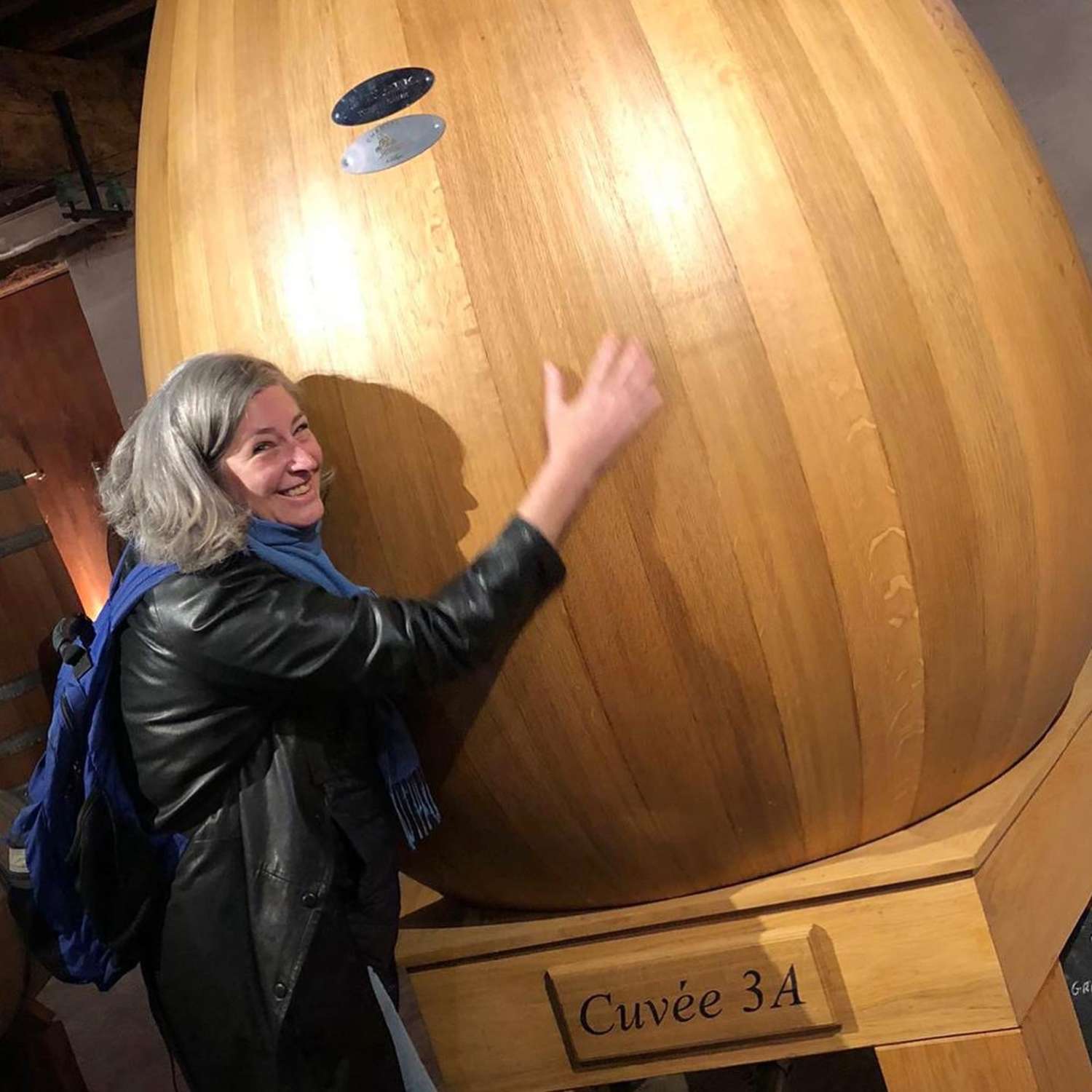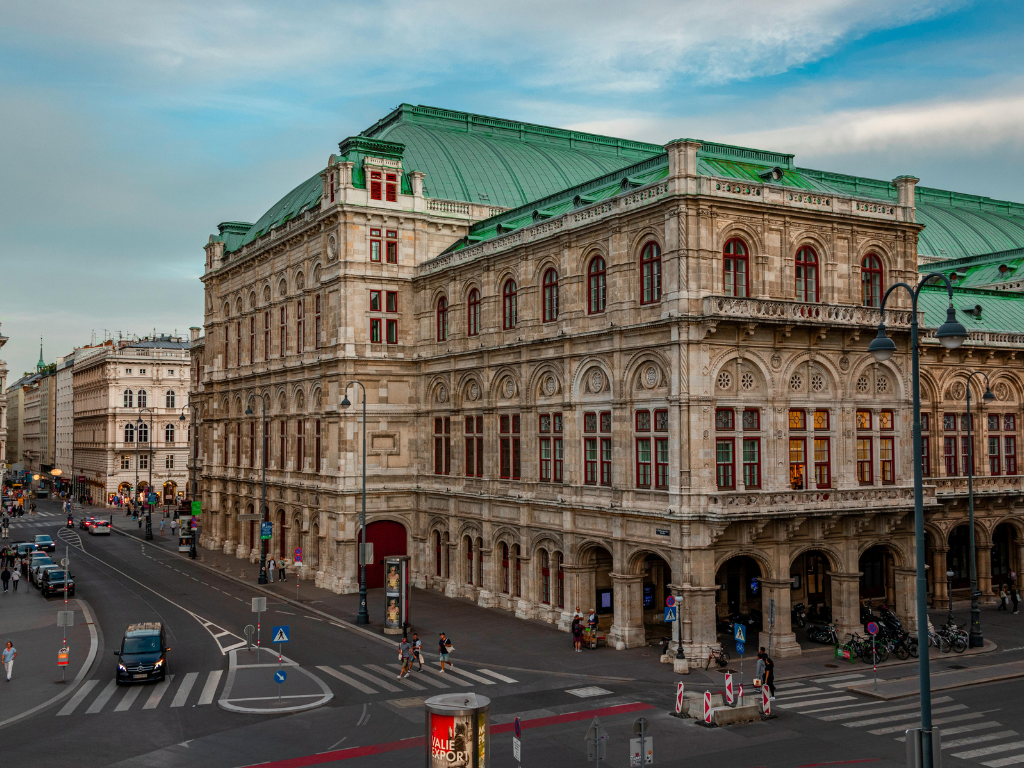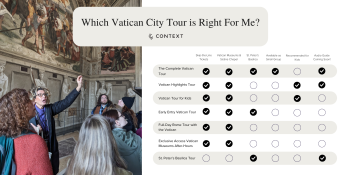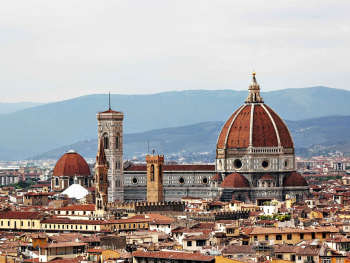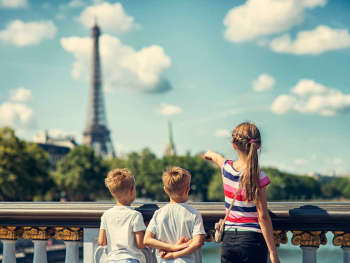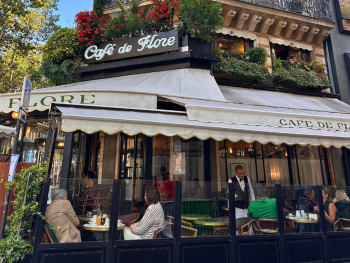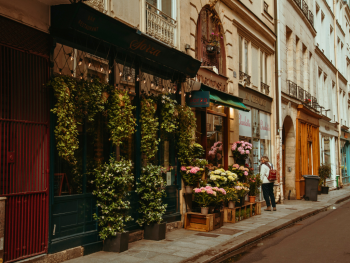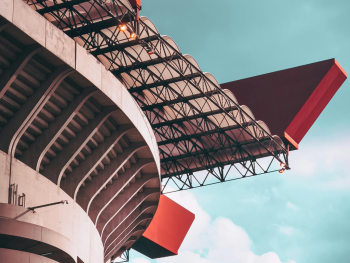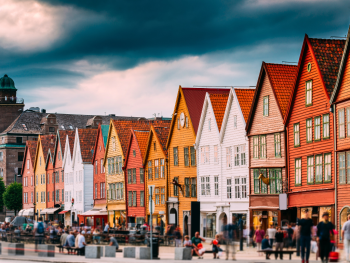By championing inclusive tastings and sharing the history behind the women in wine, Cynthia invites us all to be empowered in the wine world and beyond.
What happens when a former civil servant throws in the towel, embraces her passion, and dives headfirst into the world of bubbly? Meet Cynthia Coutu, a Context expert based in Champagne, France who offers a unique champagne experience that shines a light on female winemakers and invites guests of all experience levels to jump headfirst into the effervescent world of champagne.
We caught up with Cynthia after she was recently awarded “Most Unique Wine Experience of the Year” to talk about her passion project, her focus on female winemakers, and the ripples of change she’s set off in an industry that can, quite frankly, be a bit intimidating to the uninitiated.
Emily: For anyone who is not familiar with your work, can you give us a quick synopsis of how your champagne workshop came to be?
Cynthia: I hung up my international civil servant hat when I was 50. I had completed my Masters in Art History in France and decided to stay; I wanted to spend the next 10 years doing something that made me happy. I have a great love of wine and cheese, so I decided to go to wine school. There I realized two important things. First, the more you learn about wine, the more you realize there is to learn about it because it touches on so many things: history, geography, geology, agriculture, chemistry, gastronomy, culture…. I chose to specialize in le champagne — the wine — and la Champagne, the region. Secondly, the wine industry is male-dominated in France. I decided to only use champagnes made by women during my workshops in Paris and only take guests to visit champagne houses where women played an important role. It is my small way of supporting women.
E: Congratulations on being awarded the "Most Unique Wine Experience of the Year." How exciting! What does this recognition mean to you?
C: I was recently nominated and chosen by a panel of judges to receive this global award. After explaining the recognition, the guy who called me with the news made me laugh. He said, “You can add this award to the long list you have already received!” It is true that I have won a different award every single year since I created my workshop, including Best Wine Experience in Paris, Wine Expert of the Year, and Top 50 Wine Experiences in the World.
Of course I am proud of these awards, but they also illustrate that when you pursue something that makes you happy, you give it everything you’ve got and people recognize and appreciate that. A lot of people have told me that my life after 50 has inspired them to make changes in their own lives. I feel like what I do makes a difference and gives me a sense of purpose, and it makes me and others happy!

E: You focus on highlighting the women behind the bottles, and I'd love to talk a little bit more about this. What are some of the unique challenges women winemakers face?
C: We all aim to balance work and personal life, but women in the wine industry don’t have 9-5 jobs. They often have to work evenings or travel. Throw a kid or two in the equation and you have quite the challenge on your hands. Who is going to look after the kids at night? Who is going to get up early to make their breakfast? Who is going to hold their hand on the first day of school? If these women are winemakers, they need to work during harvest in the fall, and that coincides with the start of the school year. Harvest is one of the most intense and stressful periods of the year. Every minute counts and there are so many tasks to juggle. It is also when kids need school supplies, help with homework, reassurance and understanding. It is their stressful period too. If you are a mother in the wine industry, you basically have to work when your kids need you most!
E: Have you seen a shift in the industry, in terms of consumer awareness and appreciation for female-made sparkling wines?
C: About 70% of champagne is purchased by women. So many women have told me that if given the choice, they would prefer to buy champagnes made by other women. The problem is that they don’t know when there is a woman behind the bottle. That’s why I use social media to tell the stories about the women behind the bottles, and why I have compiled a list on my website. That list has become a reference for so many consumers and importers. An American woman who founded a wine club that only imports French and Italian wines made by women found my list and now imports several champagnes from my favorite female producers, including some that Context clients have personally met during our excursions to Champagne.

E: Speaking of Context clients, let’s talk about the groups that get to join you for a tasting tour at these female-powered champagne houses. When someone books a Full-Day Champagne Tasting Trip through Context, what are some things they can expect from their time with you?
C: Most people just hop on a train to Reims or Epernay and visit the beautiful chalk cellars of the big champagne houses. They only see the “bling bling” side of champagne, only learning the history of a specific house. And they only see where the bottles age, often during an impersonal group tour.
On my tours, during the journey from Paris to Champagne I talk about the history of the wine, geography of the region, and how the industry is organized today. I provide context for what people are about to visit. We start with a visit to the vineyards and the production cellars of a small producer. It’s intimate; you get to meet the person who grew the grapes and made the champagne, seeing all the steps involved in making champagne, not just the aging process. The vineyards we visit in the hillsides, the cellars, and the houses were added to UNESCO’s World Heritage List in 2015, so if you leave this out, you are leaving out an important piece of the puzzle!

After the visit and tasting, we have a champagne lunch at one of my favorite places. Here, we talk about the different grape varieties and other wine-making choices that affect the aromas and flavors of champagnes. We dive into why certain styles of champagne pair better with certain foods. It also helps people figure out what style of champagne they prefer, and why. After lunch, we visit the beautiful chalk cellars of a big champagne house in Reims and the impressive Cathedral of Reims where the first king of France was baptized and over 30 kings were coronated.
A day with me involves a lot of history, geography, gastronomy, viticulture and viniculture, and wine-tasting. And I, of course, underline the role of women in the history of the wine and the region, from Joan of Arc, to the Widows Clicquot, Pommery, Laurent-Perrier, and the women breaking the champagne glass bottle ceiling today.
E: How do you cater to different levels of wine knowledge within your audience, ensuring inclusivity and accessibility? You host "judgment-free tastings" on this tour. How does that empower attendees to develop their own taste preferences?
C: I tend to run my tastings like science experiments. I get people to try the same champagne in different styles of glasses, or two different champagnes side-by-side. Everyone starts at the same level, with their own senses. It has nothing to do with technical knowledge.
The other day during a tasting the producer didn’t think the angle of the bottle would make a difference when pouring. I got her to pour one way and I poured a different way in front of the clients. Guess what? It did make a big difference in the way the bubbles behaved. And the producer herself was surprised at what she learned from the experiment. All you need is an open mind. The knowledge comes after the experiment!

E: Of course, we have to sneak this one in. What is it about Context tours and the people who take them that you enjoy most? How do they differ from other customers?
C: I absolutely love taking Context customers to Champagne! They are ALWAYS so curious and ask so many questions about all aspects of the wine and the region. They want to learn as much as possible, and they appreciate all the useful knowledge I impart. At the end of our day together they feel empowered and are very grateful. That makes me feel very useful and happy!
E: If you had to describe to someone how Context tours are unique, what would you say?
C: Your vibe attracts your tribe. Context attracts curious travelers and pairs them with knowledgeable experts.
E: If you could have any woman (past or present) join you for a glass of bubbly, who would it be and why?
C: There are so many bubbly bad asses in the history of champagne, it is impossible to choose! None of the Champagne Widows ever remarried because they would have had to hand over their business and fortune to their new husband. There are lots of rumors that they had lovers. I would love to sip a glass with all of them and get them to spill the tea and confide in me!
E: Lastly, what message do you have for someone who is passionate about sparkling wines but hasn't yet taken the leap to explore and enjoy them fully?
C: Book a tour with me and you will be amazed at how much you will learn in one day, and at how much more you will want to learn - with or without me by your side!
The world of champagne is waiting to be explored, with hidden stories and inspiration around every corner. Remember, there's no wrong way to enjoy champagne. Open your mind, explore different styles, and find what delights you.
May we extend that thinking to all our travels this year, broadening our horizons and uncovering the hidden stories behind the destinations and the people who live there. Cheers to Cynthia for pulling back the curtain on the world's favorite bubbly beverage!
Inspired by Cynthia's story and passion? Book your own Context champagne tour and discover the bubbly world with a unique perspective.
